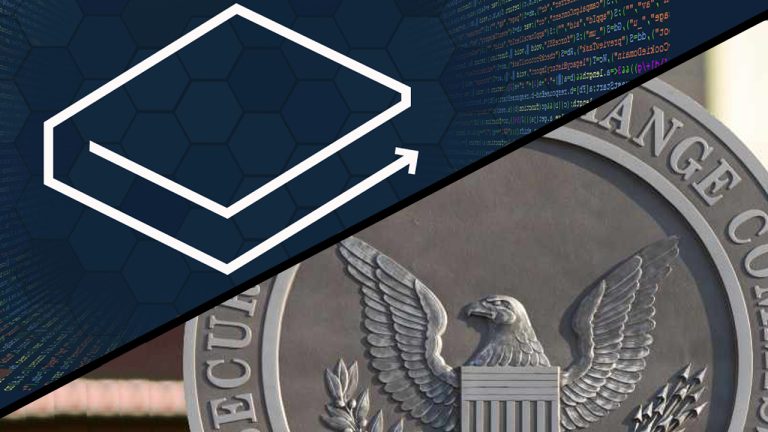
A widely followed crypto trader says that one catalyst could cause a massive amount of new investors to flood into the digital assets market. In a new video update, Guy Turner, the host of CoinBureau, tells his 2.66 million YouTube subscribers that several big-named crypto companies may launch their initial public offerings (IPOs) in the […]
The post “It’s Going To Be Big, Folks”: Coin Bureau’s Guy Turner Says One Catalyst Will Draw More Investors Into Crypto appeared first on The Daily Hodl.

A participant in Ethereum’s 2014 initial coin offering (ICO) has reportedly unloaded more than $113 million worth of ETH in the past couple of weeks. The crypto tracker Lookonchain notes the whale dumped 5,000 ETH worth $12.22 million to a Kraken deposit address on Monday, continuing a selling spree that started last month. Since September […]
The post Ethereum ICO Participant Sells Over $113,200,000 in ETH in Two Weeks: Lookonchain appeared first on The Daily Hodl.

A US federal judge found Rivetz and its CEO Steven Sprague sold unregistered securities when it offered an Ethereum-based token in 2017.
The United States Securities and Exchange Commission has scored yet another win against a crypto firm over an initial coin offering (ICO) — winning a judgment in a case against Rivetz Corp and its CEO, Steven Sprague.
In a Sept. 30 order, Massachusetts federal court judge Mark Mastroianni agreed with the SEC that Sprague, through Rivetz, sold unregistered securities by offering the Ethereum-based Rivetz, or RvT, token to US persons.
The regulator sued the defunct blockchain hardware firm and Sprague in September 2021, alleging they sold $18 million worth of Rivetz tokens in 2017 to over 7,200 investors, a third of which were in the US.

Synthetix (SNX) founder Kain Warwick thinks US regulators would have been better off steering clear of initial coin offerings (ICOs). Warwick says the U.S. Securities and Exchange Commission’s (SEC) response to ICOs was “schizophrenic and bumbling” and generated a worse outcome for the sector than if the regulator hadn’t done anything at all. ICOs were […]
The post Synthetix Creator Says SEC Would’ve Been Better Off Doing Absolutely Nothing in Response to Crypto ICOs – Here’s Why appeared first on The Daily Hodl.

Quantstamp has agreed to settle charges and will repay proceeds from its 2017 ICO that raised $28 million.
Blockchain security firm Quantamp is set to return $28 million raised in a 2017 initial coin offering (ICO) following charges brought by the United States Securities and Exchange Commission.
The U.S. agency announced that it had formally charged the California-based firm on July 21 for conducting an unregistered ICO of “crypto asset securities.” According to the SEC’s statement, Quantstamp agreed to settle the charges.
The SEC’s order outlines how Quantstamp’s ICO, which took place in October and November 2017, raised over $28 million by selling its native QSP tokens to some 5,000 investors.

The platform intended to use its ICO proceeds to “develop and market” its automated smart contract security auditing platform. The SEC order highlighted its belief that Quantstamp emphasized the “large market potential” of its service, which led QSP buyers to expect the value of their tokens to appreciate in value.
According to the SEC, Quantstamp failed to register its offering and sale of QSP tokens, which the agency deemed to be securities.
“The SEC’s order finds that Quantstamp violated the registration provisions of the federal securities laws. Without admitting or denying the SEC’s findings, Quantstamp agreed to a cease-and-desist order and to pay disgorgement of $1,979,201, prejudgment interest of $494,314, and a civil penalty of $1 million.”
The outcome of the order also provisions the establishment of a “Fair Fund” to return funds to affected investors. The firm also agreed to transfer its own QSP token holdings to the Fair Fund administrator, with the tokens set to be “permanently disabled or destroyed.”
The SEC order also notes that Quantstamp no longer operates or actively supports the automated smart contract security auditing following its deployment in June 2019.
Cointelegraph has reached out to Quanstamp for further details following the SEC’s Order.
Collect this article as an NFT to preserve this moment in history and show your support for independent journalism in the crypto space.

The 2018 MIT professor Gary Gensler didn’t think most ICOs triggered U.S. securities laws.
The crypto community is calling out the hypocrisy of Gary Gensler, the head of the United States securities regulator, after a 2018 video emerged of him stating that cryptocurrencies are on par with commodities or cash and are not securities.
The video came from a “Blockchain and Money” class in the Fall Semester of 2018 taught by Gensler, a former professor at the Massachusetts Institute of Technology (MIT) before he became chair of the Securities and Exchange Commission (SEC).
On the topic of initial coin offerings (ICOs), Gensler said that "three-quarters of the market are not ICOs or not what would be called securities" and named the U.S., Canadian and Taiwanese markets as the "three jurisdictions that follow something similar to the Howey Test."
"Three-quarters of the market is non-securities, it's just a commodity, cash,crypto,” Gensler then said.
The below clip is from a Fall 2018 Graduate MIT course called "Blockchain and Money"
— zk- (@ZK_shark) April 25, 2023
Gary Gensler - the current President of the SEC, was the professor.
The Hypocrisy speaks for itself
"So we already know in the US and in many other jurisdictions that 3/4 of the market… pic.twitter.com/rjRWeq5P8X
While Gensler briefly acknowledged that ICOs may spark a securities debate, he concluded that “three-quarters of the market is not particularly relevant as a legal matter.”
Several members of the crypto community were stunned by Gensler’s remarks.
Coinbase CEO Brian Armstrong commented a mere “Wow” in response to an April 26 Twitter post shared by cryptocurrency researcher “zk-SHARK.”
— Brian Armstrong ️ (@brian_armstrong) April 26, 2023
Erik Voorhees, the founder of crypto trading platform ShapeShift asked "When does someone get arrested for fraud?" in an April 25 Twitter post to his 658,900 followers.
When does someone get arrested for fraud? https://t.co/5BtU2sT5x2
— Erik Voorhees (@ErikVoorhees) April 25, 2023
Farokh Sarmad, the founder of Web3 podcast Rug Radio called Gensler “disgusting” in a tweet to his 346,200 followers, while a systems engineer, named “JD” called on the SEC Chair to provide an explanation behind the change in opinion.
Not everyone saw eye to eye though.
Related: Gary Gensler refuses to answer if ETH is a security: SEC hearing
U.S. lawyer Preston Byrne explained that professors and law enforcers work in “different capacities” and Gensler shouldn’t be held to the same views he had back then.
I see a lot of people giving Gary Gensler a hard time over this but it’s important to note the different capacities in which he’s speaking. As a professor, he can talk about what things are in the abstract. As a law enforcer, he’s required to enforce the laws as they’re written. https://t.co/mYhd7Hm8I9
— Preston Byrne (@prestonjbyrne) April 26, 2023
Another U.S. lawyer, Jonathan Schmalfeld, who specializes in blockchain technology, challenged Byrne’s opinion by stating that Gensler’s interpretation of the Howey Test shouldn’t change by virtue of his capacity. The response prompted a second explanation from Byrne:
“I mean when I talk with clients about this stuff there are three answers, what I think the law is, how I think enforcers will interpret it, and what the law ought to be. Right now he’s limited to giving only one of those answers by virtue of his position.”
Magazine: Crypto regulation — Does SEC Chair Gary Gensler have the final say?
 The U.S. Securities and Exchange Commission (SEC) has won a court case against the blockchain-powered publishing platform LBRY. According to a New Hampshire district court ruling, Judge Paul Barbadoro agreed with SEC that the project’s native asset LBC was considered an investment contract or a transferable share representing a certificate of interest. On Twitter, LBRY […]
The U.S. Securities and Exchange Commission (SEC) has won a court case against the blockchain-powered publishing platform LBRY. According to a New Hampshire district court ruling, Judge Paul Barbadoro agreed with SEC that the project’s native asset LBC was considered an investment contract or a transferable share representing a certificate of interest. On Twitter, LBRY […] The U.S. Securities and Exchange Commission (SEC) has charged an Australian citizen who called himself the “Man behind the Machine” in a fraudulent crypto scheme that raised almost $41 million. He and his companies made “materially false and misleading statements in connection with an unregistered offer and sale of digital asset securities.” ‘Man Behind the […]
The U.S. Securities and Exchange Commission (SEC) has charged an Australian citizen who called himself the “Man behind the Machine” in a fraudulent crypto scheme that raised almost $41 million. He and his companies made “materially false and misleading statements in connection with an unregistered offer and sale of digital asset securities.” ‘Man Behind the […] The U.S. Securities and Exchange Commission (SEC) has charged a citizen of Latvia with defrauding investors in two crypto offerings. The fraudster “used fake names, fictitious entities, and fraudulent profiles to perpetrate his schemes, and misappropriated nearly all of the investor funds that were raised.” Two Fraudulent Crypto Schemes The SEC announced Thursday that it […]
The U.S. Securities and Exchange Commission (SEC) has charged a citizen of Latvia with defrauding investors in two crypto offerings. The fraudster “used fake names, fictitious entities, and fraudulent profiles to perpetrate his schemes, and misappropriated nearly all of the investor funds that were raised.” Two Fraudulent Crypto Schemes The SEC announced Thursday that it […] The Securities and Exchange Commission (SEC) has filed a complaint against the blockchain-based file-sharing and payment network called Lbry last week, as the U.S. regulator has accused the company Lbry Inc. of selling unregistered securities. However, the CEO of Lbry denies the project’s native tokens are securities and says the SEC’s logic will put a […]
The Securities and Exchange Commission (SEC) has filed a complaint against the blockchain-based file-sharing and payment network called Lbry last week, as the U.S. regulator has accused the company Lbry Inc. of selling unregistered securities. However, the CEO of Lbry denies the project’s native tokens are securities and says the SEC’s logic will put a […]